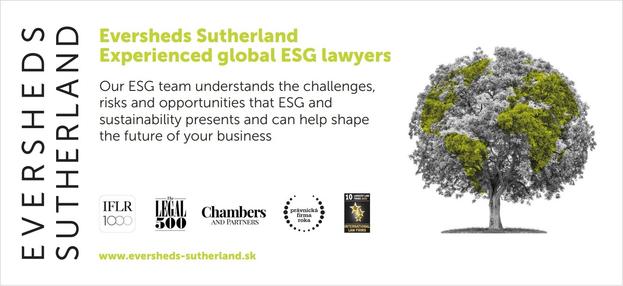
The EU introduced certain ESG reporting standards for defined companies, but that’s not all. ESG has became the imperative for business as a whole and sets the standard for an overarching way of doing business, behaviours and conduct.
What does ESG stand for?
“E” stands for Environment, “S” for Social and “G” for Governance. As for “E”, ESG includes issues like climate change, carbon footprint/greenhouse gas emissions and reduction commitments, energy, land and natural resource use, clean energy, energy efficiency in buildings, green leases, e-mobility and sustainable transport, waste management and recycling, carbon capture and offset, environmental compliance and liability, climate change litigation and regulatory action, sustainable banking, construction (net zero and modern methods), pollution and waste reduction etc.
The letter “S” stands for Social and deals with the rights, wellbeing and interests of people, such as labour policies, e.g. modern slavery, child labour, working conditions, diversity & inclusion, human rights issues, pay & benefits, employee protection, supply chain responsibility, data privacy and information law, consumer protection and litigation.
Governance is covered by “G” and deals with the governance of company, including reporting, management oversight and assurance, regulatory compliance, anti-corruption, data/customer privacy, board composition, structure and executive pay, board members’ ESG-related duties of care, sustainability-related disclosure obligations, sustainable procurement, competition law compliance, copyrights, patents & trademarks, tax compliance, criminal law sanctions of ESG non-compliance, ESG due diligence.
Why do we have ESG?
Companies are under pressure from stakeholders and funders, who want to have clean, sustainable, social products or services and a clean conscious when consuming. ESG is about reputation and value, not only an idea of the lawmaker. Customers screen vendors when making consumer choices, investors screen potential investments and track performance. Employees prefer employers who are committed to the values of ESG. Campaigners apply pressure on ESG weaknesses (e.g. benchmarking reports on human rights in supply chains, climate litigation etc).
Who is obliged to have ESG (reporting)?
The so-called Corporate Sustainability Reporting Directive (CSRD) of the EU as the most relevant legal act introduces ESG reporting obligations to a defined circle of companies and extends this obligation step by step to a broader group of companies. Starting with large enterprises in 2024, the reporting obligations will be extended by 2025 to mid-size companies and by 2028 even to subsidiaries outside of the EU.
Who needs to have ESG?
Certainly companies, which are subject to CSRD reporting obligations. Since however CSRD reporting includes the assessment of supply chains, even small companies do not escape ESG requirements if they are in a supply chain with a company that is required to have ESG reporting. So ESG is mandatory for most businesses, not only for companies which are subject to ESG reporting obligations.
Mag. Bernhard Hager, LL.M.
Managing Partner

This article has been brought to you by Eversheds Sutherland
